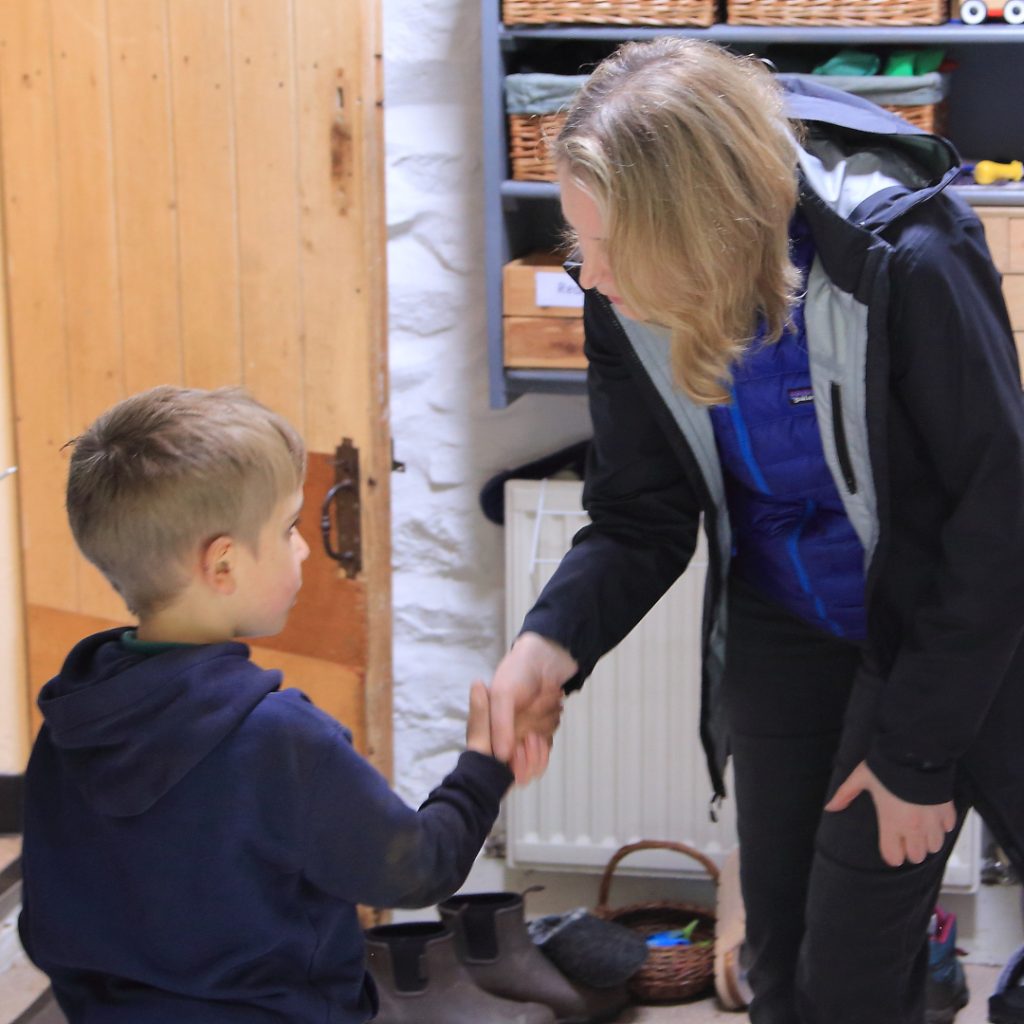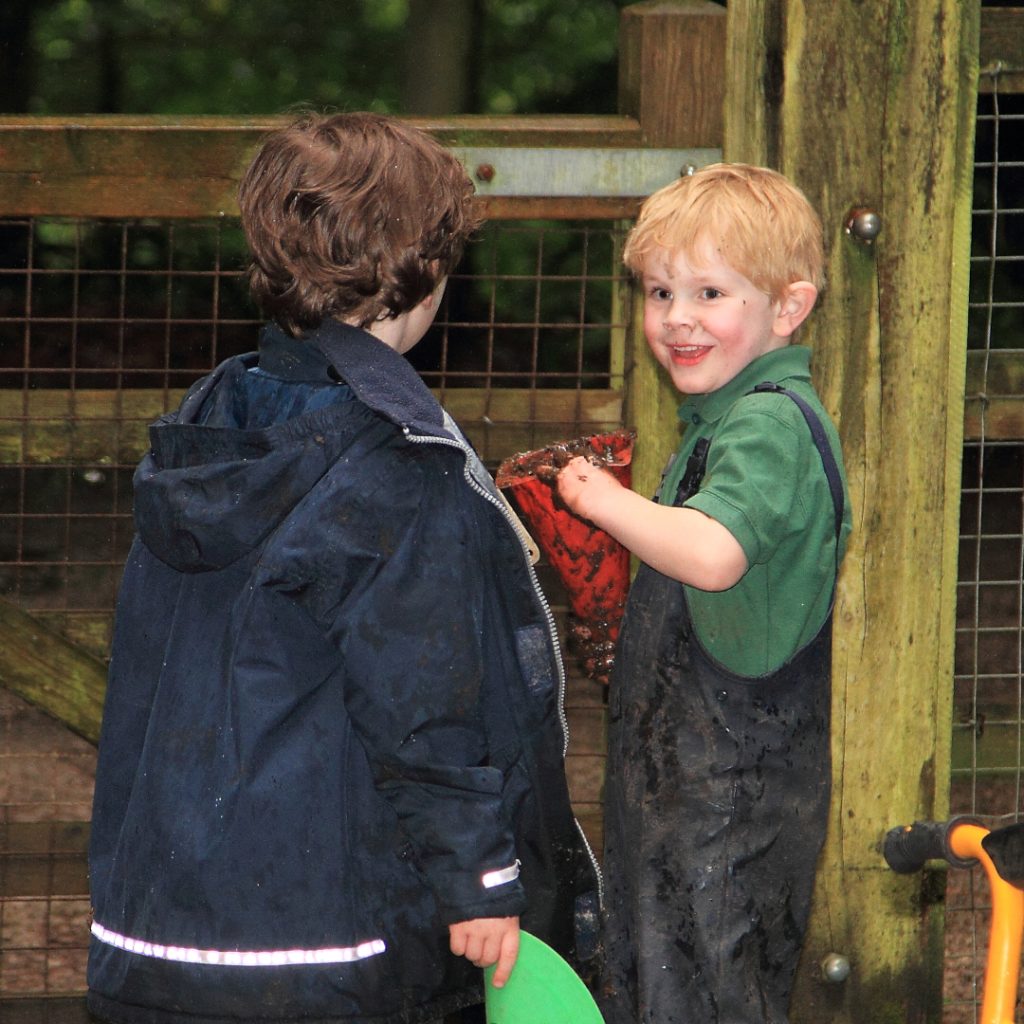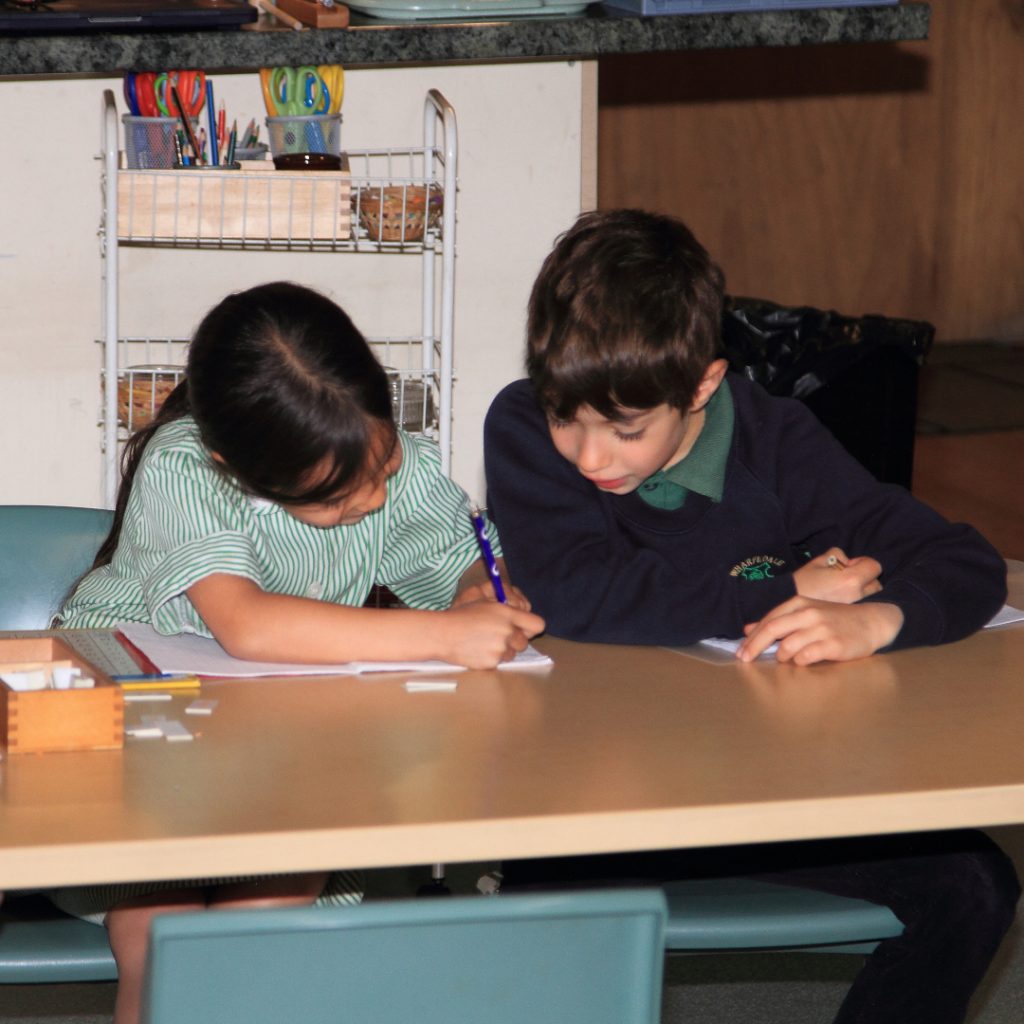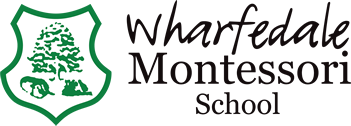The Wharfedale Montessori Curriculum details the educational goals and curriculum content we provide to support the development of infants, children and young people from three to eleven years of age. This is an international curriculum shared by Montessori schools throughout the world. This curriculum is introduced with an overview of the pedagogical principles that guide our practice.
In the Montessori view, the drive to become independent propels human development. Montessori education aims to provide children and young people, from birth to maturity, with learning environments designed to support the development of social, intellectual and ethical independence. For this reason, Montessori education is often described as ‘education for life’. The foundation principle of the Montessori approach is that children learn best when they learn through their own freely chosen activity. Evidence gathered in Montessori schools throughout the world over the last century confirms that children who can learn in this way become self-confident, self-reliant and self-disciplined, with a life-long love of learning and the desire and capacity to contribute to the wellbeing of their social group. They also develop the ability to move with coordination and precision, and the ability to concentrate and to complete tasks independently with both perseverance and creativity.
A key aspect of the Montessori curriculum are the four consecutive ‘planes’, or stages, of development, from birth to maturity. Each of these planes lasts approximately six-years. At each plane of development children and young people display intellectual powers, social orientations and creative potential unique to that stage. Each plane is characterised by the way children in that plane learn, building on the achievements of the plane before and preparing for the one to follow. The timing and nature of the transition between planes vary from individual to individual.
- The first plane of development is the period from birth to, approximately, age six. During this stage children are sensory explorers, learning to become functionally independent in their immediate environment and community. Children at this stage construct their own intellect by absorbing every aspect of their environment, language and culture.
- The second plane of development is the period from, approximately, six to twelve years. The developmental focus of this period is intellectual independence, hand in hand with the development of ethics and social responsibility. During this stage children become conceptual explorers. They use reasoning, abstract thought and imagination to explore and develop their understanding of the world.
- From age twelve to eighteen young people become humanistic explorers seeking to understand their place in society, and to contribute to society. They have a huge capacity for creative expression, and their style of learning becomes more practical and experiential, an approach they use to explore previously introduced concepts in more depth and in real-life contexts.
- From eighteen to twenty-four young adults develop specialist knowledge and skills, preparing them to take their place in the world and to establish social and economic independence.
For each plane of development there is a specific Montessori learning environment. Montessori environments for each plane maintain distinctive Montessori characteristics, including freedom of choice and movement, and an emphasis on independent exploration and self-directed learning. At the same time the design of each environment is customised to the specific needs, interests and potential of each developmental stage.
At Wharfedale Montessori School we have a Children’s House for children from 3 to 6 years of age. When they are ready to transition, they join the primary school. This is called The Cabin, and here all children aged 6-11 years old share the same space.
Vertical grouping (sometimes called multi-age grouping) helps towards the creation of an environment that is most like a family experience. Younger children can learn from older children and may aspire to be like them. Older children take care of younger children, teach them, and care for them. New children who join our school can join established communities, making transitions easier to manage.
Our school, like every Montessori school throughout the world, has three key elements. These are; the child, the environment, and the adult.
The Child is the focus of our work, and the reason that we are here. They are the starting point, and the guide that will inform us of what we need to do as teachers, and how the environment needs to be prepared to best meet their needs.
The teacher’s role at Wharfedale is to be a guide that accompanies the child on their journey. To be an effective guide they must get to know the child very well, and to build a relationship built on trust and respect. The teacher will use their knowledge and skill to prepare an environment and activities that will engage the child and allow them to grow, support the child at the appropriate time, nurture their understanding of and involvement in the social group, and assist the child in fostering inner discipline.
The materials and environment are prepared by the teachers every day. They are a manifestation of the respect we hold for the child and are kept in excellent condition. The children help with this task. One of the first things they learn is to return materials and activities to the place they got them from, ready for someone else to use. This begins the inclusion and accountability that comes with belonging to a community. All of out materials are designed to provoke enquiry and engagement, and the majority invite hands-on manipulation. They can be used in a precise fashion and have a high degree of repeatability which allows for the development of concentration and mastery over concepts.
In the Children’s House, the Montessori curriculum is typically seen through activities and materials are usually presented to individual children. Presentations from adults may gain observers, and other children who are watching may ask to be shown the activity. In The Cabin there will typically be more small group activities, but only if all children in the group will benefit from this. Children of all ages are free to repeat any activity as often as they wish. At a younger age this can help develop perfection, for older children they may vary the activity, extend their thinking, and synthesise their work with other ideas.



